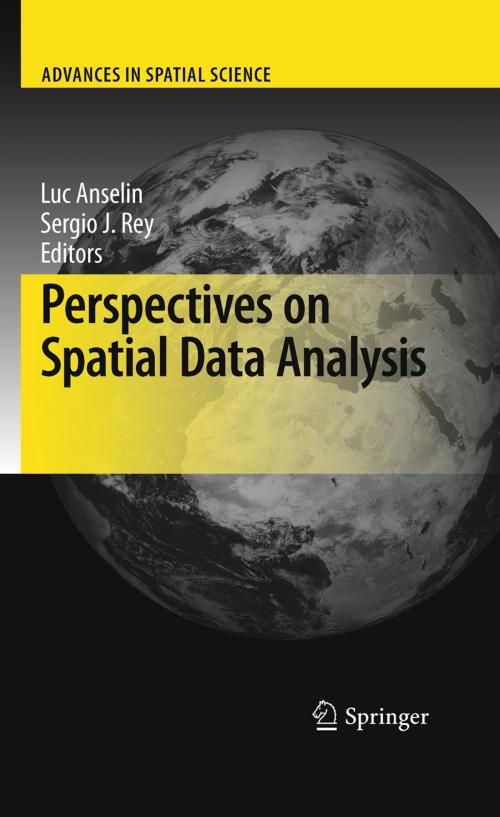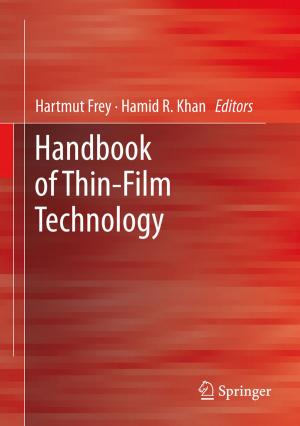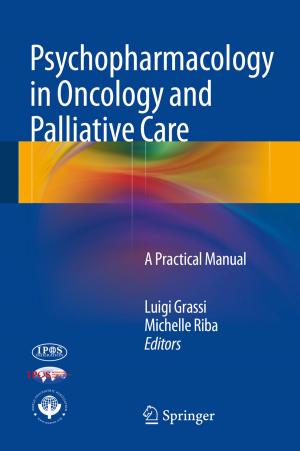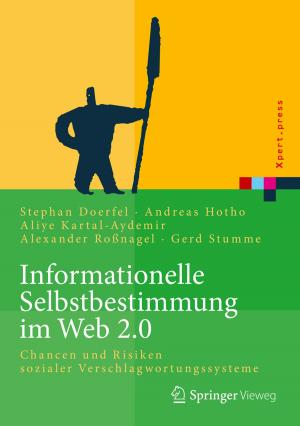Perspectives on Spatial Data Analysis
Business & Finance, Economics, Urban & Regional, Statistics, Nonfiction, Science & Nature, Mathematics| Author: | ISBN: | 9783642019760 | |
| Publisher: | Springer Berlin Heidelberg | Publication: | December 24, 2009 |
| Imprint: | Springer | Language: | English |
| Author: | |
| ISBN: | 9783642019760 |
| Publisher: | Springer Berlin Heidelberg |
| Publication: | December 24, 2009 |
| Imprint: | Springer |
| Language: | English |
Spatial data analysis has seen explosive growth in recent years. Both in mainstream statistics and econometrics as well as in many applied ?elds, the attention to space, location, and interaction has become an important feature of scholarly work. The methodsdevelopedto dealwith problemsofspatialpatternrecognition,spatialau- correlation, and spatial heterogeneity have seen greatly increased adoption, in part due to the availability of user friendlydesktopsoftware. Throughhis theoretical and appliedwork,ArthurGetishasbeena majorcontributing?gureinthisdevelopment. In this volume, we take both a retrospective and a prospective view of the ?eld. We use the occasion of the retirement and move to emeritus status of Arthur Getis to highlight the contributions of his work. In addition, we aim to place it into perspective in light of the current state of the art and future directions in spatial data analysis. To this end, we elected to combine reprints of selected classic contributions by Getiswithchapterswrittenbykeyspatialscientists.Thesescholarswerespeci?cally invited to react to the earlier work by Getis with an eye toward assessing its impact, tracing out the evolution of related research, and to re?ect on the future broadening of spatial analysis. The organizationof the book follows four main themes in Getis’ contributions: • Spatial analysis • Pattern analysis • Local statistics • Applications For each of these themes, the chapters provide a historical perspective on early methodological developments and theoretical insights, assessments of these c- tributions in light of the current state of the art, as well as descriptions of new techniques and applications.
Spatial data analysis has seen explosive growth in recent years. Both in mainstream statistics and econometrics as well as in many applied ?elds, the attention to space, location, and interaction has become an important feature of scholarly work. The methodsdevelopedto dealwith problemsofspatialpatternrecognition,spatialau- correlation, and spatial heterogeneity have seen greatly increased adoption, in part due to the availability of user friendlydesktopsoftware. Throughhis theoretical and appliedwork,ArthurGetishasbeena majorcontributing?gureinthisdevelopment. In this volume, we take both a retrospective and a prospective view of the ?eld. We use the occasion of the retirement and move to emeritus status of Arthur Getis to highlight the contributions of his work. In addition, we aim to place it into perspective in light of the current state of the art and future directions in spatial data analysis. To this end, we elected to combine reprints of selected classic contributions by Getiswithchapterswrittenbykeyspatialscientists.Thesescholarswerespeci?cally invited to react to the earlier work by Getis with an eye toward assessing its impact, tracing out the evolution of related research, and to re?ect on the future broadening of spatial analysis. The organizationof the book follows four main themes in Getis’ contributions: • Spatial analysis • Pattern analysis • Local statistics • Applications For each of these themes, the chapters provide a historical perspective on early methodological developments and theoretical insights, assessments of these c- tributions in light of the current state of the art, as well as descriptions of new techniques and applications.















